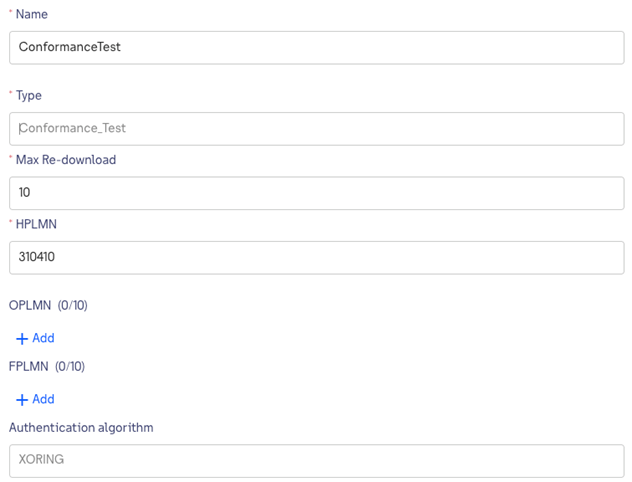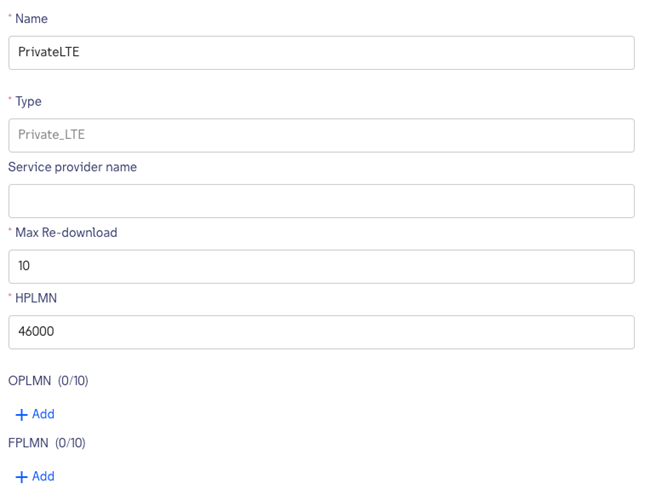How Simlessly's RSP-as-a-Service platform helped MediaTek with an automated testing framework for eSIM configurations
Founded
1997Industry
SemiconductorsMediatek Incorporated (TWSE: 2454) is the world’s 4th largest global fabless semiconductor company. They are market leaders in developing innovative systems-on-chip (SoC) for mobile devices, home entertainment, connectivity and IoT products. Ultimately, they power more than 2 billion devices a year – that’s in 20 per cent of homes and nearly 1 of every 3 mobile phones globally.
Simlessly is an American SaaS company that focuses on providing eSIM infrastructure services for various industries. Starting from innovative SaaS product models and professional technical capabilities, it unremittingly promotes the large-scale adoption and popularization of eSIM and iSIM. RSP-as-a-Service is Simlessly's first official flagship product, aimed at MVNOs and communication service providers who serve the Travel SIM industry. In addition, private LTE and eSIM device testing are also two important application scenarios.
Simlessly provided a technical service that could support remote & flexible eSIM configuration
Simlessly supported with API integration for an automated & digitized testing framework, saving time & money.
Simlessly provided support to run different tests simultaneously by many teams in a rather big enterprise like Mediatek while maintaining the respective admin rights
Challenges
As more commercial devices are equipped with eSIM functionalities, eSIM has introduced additional criteria for equipment manufacture, manufacturing, testing, and other activities. Before any modem chip, security element chip, or device goes into production with the eSIM feature, In the laboratory, the RF and Protocol Conformance test (also known as the white card test), simulates several network operator compatibility checks, Real network testing (Voice, SMS, Cellular Data, and so on) are several important core activities in ensuring the entire quality of wireless cellular devices and system communication capabilities.
Previously, the Physical SIM test was quite simple, and the test purpose could be accomplished by regularly plugging and unplugging different cards using tools or predefined data provided by operators. If the eSIM is embedded into the device, it must rely on over-the-air updates of various test data configurations to meet various test conditions.
MTK chip product series and applicationable devices are diversified, encompassing a wide range of mobile phones and even IoT devices. First and foremost, they required a technical service that could support remote and flexible eSIM configuration, modify quickly, and achieve the impression that ‘what you see is what you receive’. Second, it is required to support the API integration approach for the development of an automated testing framework to minimize the manual intervention process and save testing time and money. The third is that there are usually different product lines and test teams in the entire group, and they must be able to perform test configuration and management in a unified manner while also differentiating the account permissions, involving different teams, managing them in an orderly manner, and avoiding conflicts and waste.
Simlessly delivered the following solution within a week after the MTK team's test engineer contacted Simlessly on the official website via a professional introduction.
Resolutions
To begin, 'Simlessly' summarized and sorted out the various test scenarios and requirements that a commercial eSIM device test requires, and then framed product functionalities to tackle these difficulties, which primarily include:
- RF & Conformance Test:
The device can be used for white card test simulation to validate the performance of hardware such as RF antennas and radio frequencies, as well as the consistency of communication protocols. It may create a white card by generating USIM Test data and connecting directly to the test equipment for testing and seeing the results. Rohde & Schwarz and Anritsu et al. are common names. As a blueprint for this test scenario, 'Simlessly' abstracted and created the RF & Conformance Test Profile Config. Customers can simply and quickly modify and update test settings in the template, and then generate the relevant eSIM in real time and download it to commercial equipment for testing. They may now check the Profile's installation progress in real-time in the management customer portal, allowing them to swiftly discover and resolve related issues during the eSIM test process.

- Lab Test:
To conduct more real wireless communication simulation tests, equipment manufacturers typically build their own private laboratory networks, which include a complete set of self-deployed core network systems, small base stations, antenna radio frequencies, and shielding boxes. This may simulate network setup, device communication compatibility, wireless communication function, device band, and network standard of operators in various countries across the world, such as 4G, 5G, data, voice, VoLTE, SMS, IMS, and so on. Similarly, 'Simlessly' supports transferring various test profiles and configuration data required by the laboratory's core network system into the 'Simlessly' RSP platform after converting them into eSIM profiles for download to eSIM devices for extended and comprehensive testing.

- Real Network Test:
Following completion of the above-mentioned instrument and laboratory simulation tests, network testing is usually required before commercial release or in the manufacturing line to guarantee that nothing goes wrong. According to their unique criteria, manufacturers will decide whether each device has to be tested or sampled for networking. Access to data or voice services is typically determined by the activation configuration of the profile provider and has nothing to do with the eSIM itself. If the line number in the country where the production line is located enables data or voice, the network test can be performed directly.
Customers must purchase the number separately if it is not supported. In that case, 'Simlessly' can additionally assist in converting the relevant number to eSIM.
- Ancillary service support:
After completing the functional verification of the above core test scenarios, 'Simlessly' offers beyond expectations additional supporting services to suit the use, unified administration, and control requirements of large enterprise customers. This contains number import, QR code generation, QR code deletion, profile status change notification, query Profile status, query the device model downloaded by Profile and more. APIs have also played a significant role in assisting MTK test engineers and teams in developing automated tests and integrating with the existing system. Furthermore, testers frequently need to download repeatedly in test scenarios to assess stability and compare performance (Performance benchmark). 'Simlessly' allows for repeated downloads when the same number is successfully removed on the same device, up to 10-100 times or more, substantially easing testing efforts for testers. 'Simlessly' also supports the usage of administrator accounts to configure Config and group rights uniformly for different products and test teams. Sub-accounts can only view the assigned eSIM test, which enhances internal communication across different teams in rather big enterprises.
As an industry promoter and long-term believer in the development of eSIM, Simlessly has paid attention to this trend and key pain points, conducted in-depth research on customer scenarios, formed solutions and product functions, and insisted on product principles that the platform should be easy to use, API should be friendly to developers and designed for enterprises level unified management. After all, Simlessly provides solutions and high-quality RSP-as-a-Service services for all eSIM device manufacturers and has won the trust and high recognition of customers of global top Semiconductor manufacturers.
Polo Yang, Technical Manager
Mediatek
Conclusion
The switch from SIM to eSIM has impacted the entire device manufacturing process and method. A critical component is the complete life cycle and end-to-end testing of eSIM devices, particularly the necessity to digitize or automate the manual testing and processing of traditional SIMs. As demonstrated in the success story above, 'Simlessly' has all of the essential tools and instruments to automate the entire process of testing eSIMs.


